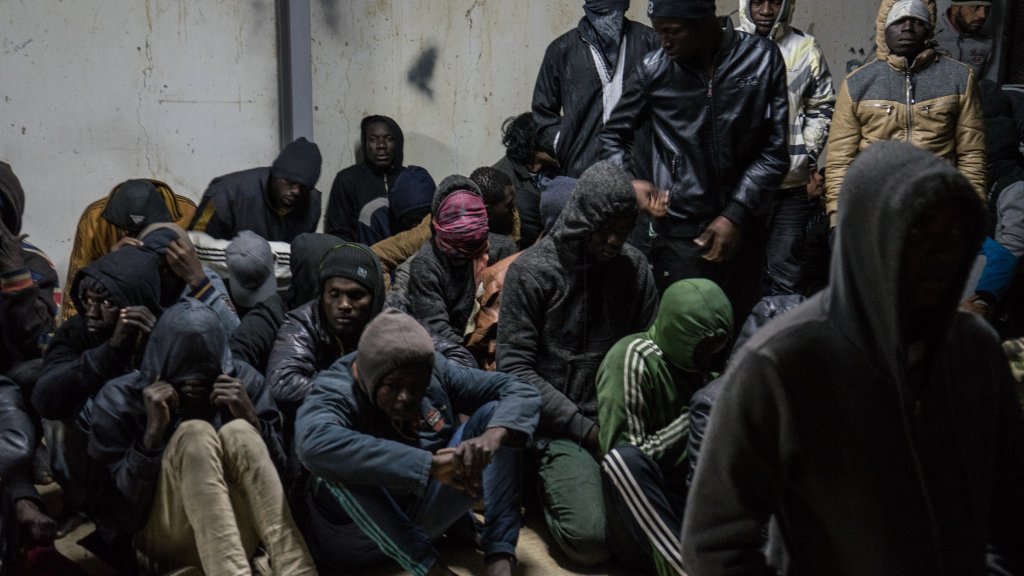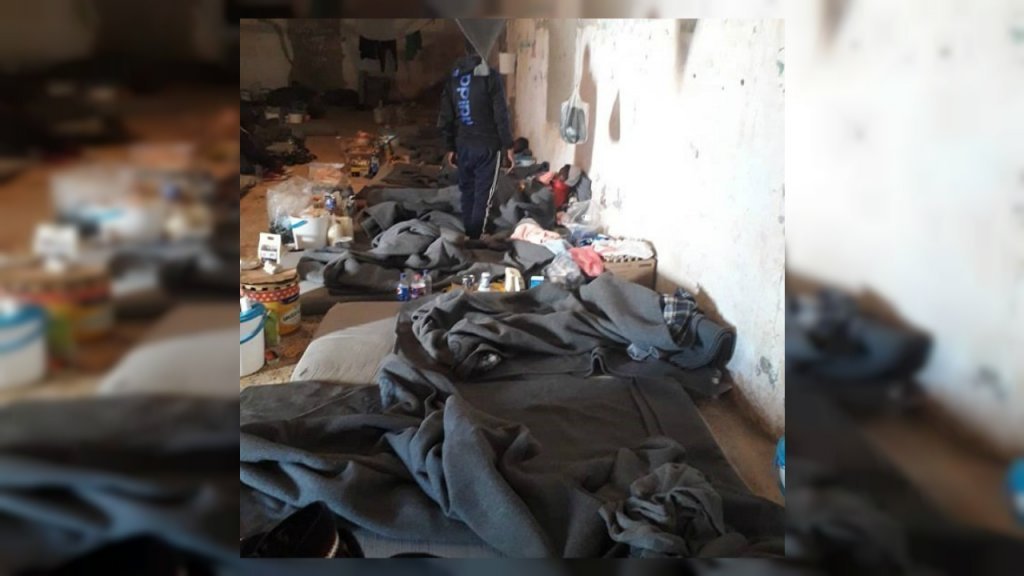Vasseko and his wife met in Tunisia after leaving Ivory Coast in 2015. Seeking to reach Europe, they crossed the Tunisian border together into Libya. It was there that the couple became caught in a cycle of detention in the north African country's secret prisons.
Vasseko works at the Villa Lepic, an upscale hotel in the Cocody district of Abidjan. InfoMigrants met him during a chance encounter at the establishment. Before finding his bartender job, the 42-year-old Ivorian dreamed of reaching Europe "to earn more". That was 10 years ago, when Vasseko moved to Tunisia and worked as a cook in a hotel in La Marsa, Tunis. He moved to Libya in early 2017. It was the beginning of a hellish ordeal, he told InfoMigrants:
"I met my wife in Tunisia, when she was working in the same hotel as me. I was a cook, and she was a cleaner. Life was going well for us. Yet after a few years, I wanted to earn more money. I told myself that I could go to Europe, to Brussels. I was good at soccer, and I thought that I might have an opportunity there. So I contacted people [smugglers, editor's note]... In 2017, I suggested to my wife that we journey through Libya. She accepted. I still regret that decision..."
When Vasseko lived in Tunisia between 2015 and 2017, the country was led by Béji Caïd Essebsi, the first head of state to emerge from a free presidential election in 2014. President Kaïs Saïed was not yet in power. Sub-Saharan Africans were not harassed by the authorities like they are today. Vasseko lived a "peaceful" life in Tunis.
Read AlsoBansumana's tale: From slavery in Libya to pizza chef in Italy
'In Libya, we saw horrible things'
"We crossed the Libyan border and arrived in Zouara, then Sabratha [cities in western Libya, editor's note]. The smugglers locked us in their car’s trunk and sent us to a place that was a former naval camp, I think. We stayed there for two or three months. It was hard, but I told myself we had to be patient and that we would set sail soon. It was only a matter of time.

My wife and I saw horrible things... I saw an Ivoirian die from dysentery before my eyes. She never received medical attention. There was no health or medical help, we were being kept in a secret place. It was a jungle. I was struck on my hip several times and it still hurts today. They told me to pay a ransom so that I could be released, but I had no one that could provide the money. So, they started beating me again."
The international community discovered in 2017 that Black people in Libya were being trafficked and traded as slaves. The American network CNN filmed apparent footage of a slave auction in Libya, sparking global outrage. The UN expressed "shock" and describing it as an outrage "against the conscience of mankind," while Tripoli promised it would launch an investigation. Yet several years went by, and the situation remained the same. Migrants are still victims of abuse in official prisons run by the authorities in Tripoli, or in secret prisons managed by traffickers.
Read AlsoLibya: MSF ends medical activities in Tripoli detention centers
Freed
"We were freed one day. I don't really know who the people who rescued us were. They handed us over to the Libyan authorities. I thought things were going to get better for us, we even met people from the IOM [International Organization for Migration, editor's note] for the first time.
I had given up in the meantime on crossing the sea. I told my wife, 'We're stopping everything, we're going back.' We wanted to request repatriation to our country.
While we waited for our files to be reviewed by the IOM, the authorities transferred us to an official prison named Gharyan Al Hamra [run by the Libyan Directorate for Combating Illegal Migration (DCIM), editor's note].
Read AlsoLibya: UN confirms 93 bodies exhumed from mass graves
'I didn't know if my wife was alive for several weeks'
I was separated from my wife at that point, who didn't stay in Gharyan. I don't know where she was taken. I felt terribly guilty. I was the one who had dragged her into this situation. I didn't know if she was alive for several weeks.
It was horrible In Gharyan. People were getting sick and weren't receiving treatment. I saw a young man gradually lose his mind. I think he was claustrophobic. He went crazy. I don't know why, but I was holding up physically. I found myself to be more resilient than I ever would have thought myself to be."
Vasseko later learned that his wife had been taken from Gharyan to a smuggler's house in Tripoli, where she stayed for several weeks. She asked the smuggler for help, begging him to use his "network" to check on her husband. The smuggler informed her that all the migrants from Gharyan had been transferred to another center "two kilometers away from Tripoli". She persisted. The connection was finally established, and Vasseko and his wife managed to speak for a few minutes. They were both in the Tripoli region. They promised each other that they would go home to Abidjan and meet there.
"My wife told me over the phone that she was going to the IOM to request a return to Ivory Coast. I later learned that she had narrowly escaped being kidnapped. She noticed that her taxi wasn't taking the route to the UN headquarters in Tripoli, so she jumped out of the moving car. She could have ended up being sold.

I stayed for two or three more weeks in the Tripoli center where I had been transferred to after Gharyan. The living conditions were less dire than in the other places I'd been.
The IOM came one morning to pick me up and they flew me home. I returned to Abidjan alone; I think it was December 20, 2017. I had nothing left, only the clothes I was wearing and the 100,000 CFA francs [about 150 euros] that the IOM had given me. I waited for my wife. She arrived a month later, in January 2018. When I found her at the airport, she had lost a lot of weight; she was unrecognizable. But I was overjoyed that she was alive."
In the following months, Vasseko and his wife tried to rebuild their lives in Abidjan despite the "taunts" of others who blamed them for having failed in their migration to Europe. "We suffered a lot psychologically." Yet Vasseko never regretted his decision to return: "I preferred to suffer in the land of my ancestors rather than there, in Libya." Vasseko has managed to bounce back eight years after his ordeal. He earns his living and has found a stable job at the Lepic Hotel. His wife has started her own small business. They now have two children, aged six and two.
